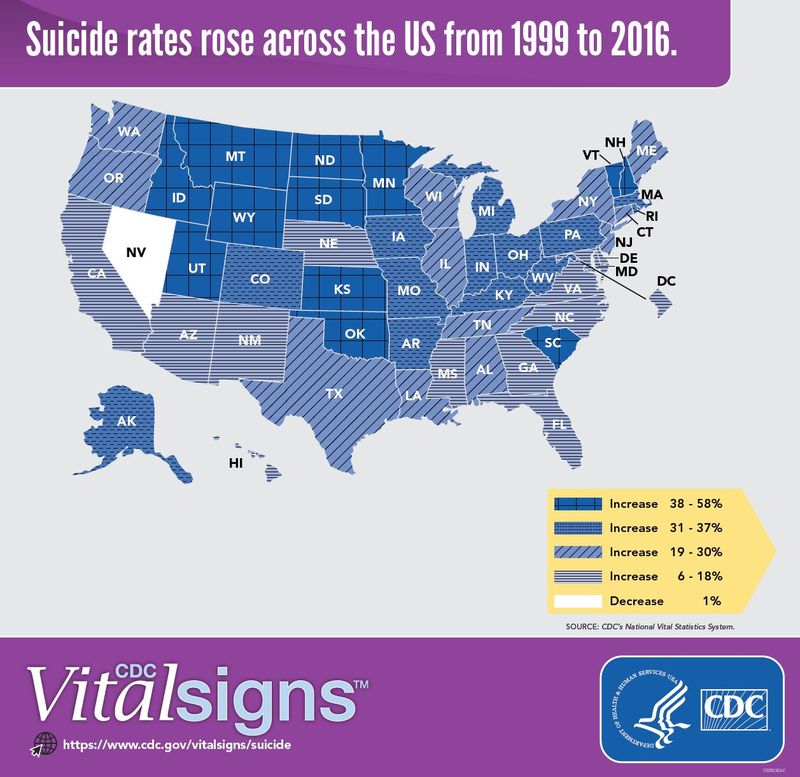There is no rhyme or reason to the increases, half of states, from cultures as different as Vermont and North Dakota, saw large changes of over 30 percent. Suicide is the 10th-leading cause of death in the U.S., and rates have been climbing steadily for years. With 44,965 suicide deaths in 2016, half of them using a firearm, the CDC would like to know why.
The answer may be that half of those who died by suicide did not have a known mental health condition. But that doesn't mean it is not a mental health issue, as CDC suggest by saying that is just one factor, that may mean it is a diagnosis issue.
CDC is very good about aggressive over-diagnosis in some areas, e-cigarettes and pre-diabetes are prominent examples where they defied the science consensus to embrace the precautionary principle, so it is inconsistent to be urging caution about the role of mental health in suicides.

This morning, it was determined that celebrity chef Anthony Bourdain's death was a suicide, but a few days ago he posted a video of himself having fun.
A few days ago fashion designer Kate Spade also committed suicide, with her husband declaring he did not know she was at risk. How much more awareness does CDC think there needs to be?Four days ago, Anthony Bourdain posted a video of himself smiling, having a drink and watching his staff from #PartsUnknown dancing ... The signs aren’t always obvious
— Troy Hughes™ (@TommySledge) June 8, 2018
If you or someone you know needs someone to talk to, call 1-800-273-8255pic.twitter.com/oX0LUBQkON
So while it is true that suicide is multifactorial, so is everything. Saying that isn't helping anyone, especially when it comes from a federal disease body that recently adopted the mantle of "prevention" in its mandate. Their recommendations are so vague as to be pointless. Keep firearms and drugs out of the hands of those at risk are common sense, unless you don't know half of suicides were at risk. And CDC also discourages media from reporting on suicides, which risks lowering awareness and stigmatizing mental health.
Telling media to share "stories of hope and healing" reads like Dr. Phil integrative medicine advice, not sound mental health policy.





Comments